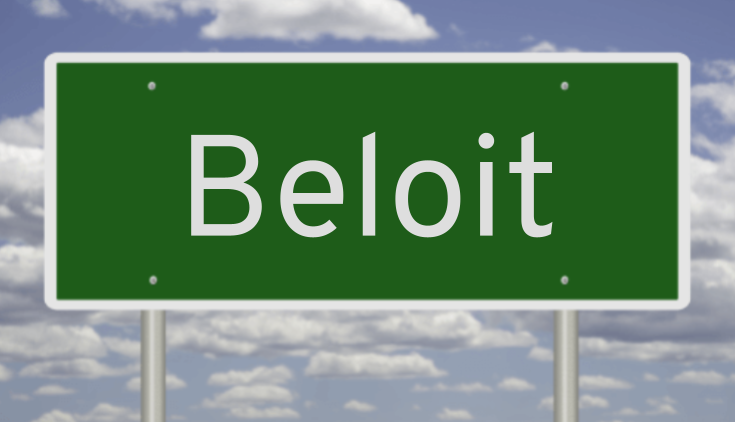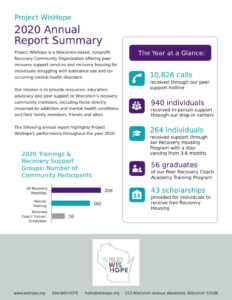Beloit Location
Visit Us at Our Drop-in Recovery Community Center in Beloit, Wisconsin
Project WisHope operates four Recovery Community Centers located in Waukesha, Waupaca, Beloit, Baraboo(Coming soon). Our Recovery Community Center (RCC) in Beloit is a drop-in center for individuals seeking support for substance use and co-occurring mental health disorders. At this center, you will find opportunities to develop positive social networks and receive non-clinical, recovery support services, including peer recovery coaching services, life skills training and job placement, all recovery support meetings and more. The goals of our recovery community centers are to provide accessible and localized support that will increase recovery and improve the quality of individual and community life.

FIND us at Beloit 424 College St. Beloit, WI 53511
Call us at (844) 955 – 1118
Hours: Monday – Friday 3p – 6p
Our Beloit Recovery Community Center Offers:
24-Hour peer-run resource and support hotline offering behavioral health resources to the state of Wisconsin
Community trainings, including Narcan, Recovery Messaging, Recovery Basics for Parents, Certified Peer Recovery Coaching and others as needed
Job training and job placement assistance
Job training and job placement assistanc
Peer Recovery Coaching services for anyone struggling with substance use disorders
Peer Recovery Coaching services for employers, drug courts, emergency departments, hospitals and first responders
Recovery Responsive Workplace programming to engage and train employers in devolving safe and recovery supported working environments
What is a Recovery Community Center (RCC)?
- RCCs are peer-operated centers that serve as local resources of community-based recovery support. People do not live at these centers, but rather these resources can help individuals build recovery capital at the community level by providing advocacy training, recovery information and resource mobilization, mutual-help or peer-support support meetings, social activities, and other community-based services
- RCCs help to facilitate supportive relationships among individuals in recovery, as well as community and family members. In turn, this increases recovery and helps individuals initiate and sustain recovery long-term
- RCCs play a unique role in building on professional services and mutual-help organizations by connecting recovering individuals to social services, employment and skills training, and educational agencies
- Like most mutual-help organizations, volunteering at RCCs is highly encouraged for people in recovery as a way of giving back and helping others

